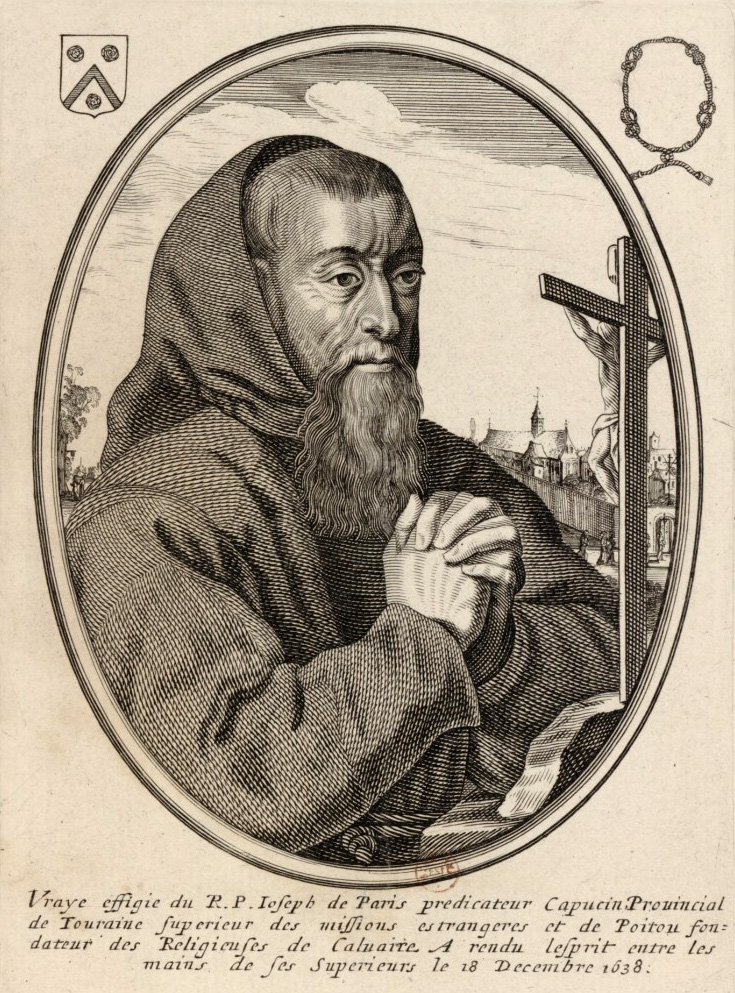“Grey Eminence” is a non-fiction book by Aldous
Huxley, first published in 1941. Huxley is mostly known for his dystopian novel
“Brave New World”. Spiritual seekers may also be familiar with his non-fiction
works “The Perennial Philosophy” and “The Doors of Perception”. Huxley was
intensely interested in mysticism, and seems to have been a self-proclaimed
expert on the subject. Religion and mysticism also play a central role in “Grey
Eminence”, a biography of Père Joseph or Father Joseph, a 17th century French
Capuchin friar.
Father Joseph (born Francois Leclerc du Tremblay) was a man of paradoxes, who combined intense piety, self-mortification and mystical prayer with a life in politics. As the eminence gris of Cardinal Richelieu, Father Joseph was one of the most powerful men in Europe. He headed a vast network of French spies, and was actively involved in Richelieu's military campaigns and Machiavellian power politics. Huxley believes that the plotting of Richelieu and Father Joseph on behalf of the French Bourbon monarchy prolonged the horrors of the Thirty Years' War. When not preoccupied with matters of state, the Capuchin monk dreamt of organizing a crusade to Palestine – a task that combined the “spiritual” with the political.
“Grey Eminence” is a peculiar book, since it doesn't simply tell Father Joseph's story. It's interspersed throughout with Huxley's frequently moralistic comments on politics, human nature and mysticism. While this is interesting, it occasionally borders the pathetic, as Huxley (hardly an accomplished mystic) cock surely tells us that, of course, the impersonal mysticism of the Upanishads and Buddha is true, while contemplation of anthropomorphic deities such as Jesus or the Virgin is really pseudo-mysticism. This, he seems to be telling us, explains why Father Joseph was “tempted by the Devil” and ended up doing the dirty work of an oppressive French monarchy, rather than becoming a true saint.
Be that as it may, I admit that “Grey Eminence” is extremely well written, and even the chapters on mysticism are perfectly understandable. Of course, the book does raise disturbing questions – if even a man who regularly met Christ in his visions could turn out so badly, where does that leave the rest of us? I don't know if Aldous Huxley believed in astrology, but it's interesting to note (as an aside) that Père Joseph was a Scorpio and seems to have fulfilled the stereotypical qualities of this particular sign almost to a tee…
Yes, this really is vintage Huxley. And perhaps vintage Père Joseph. Five stars!

No comments:
Post a Comment